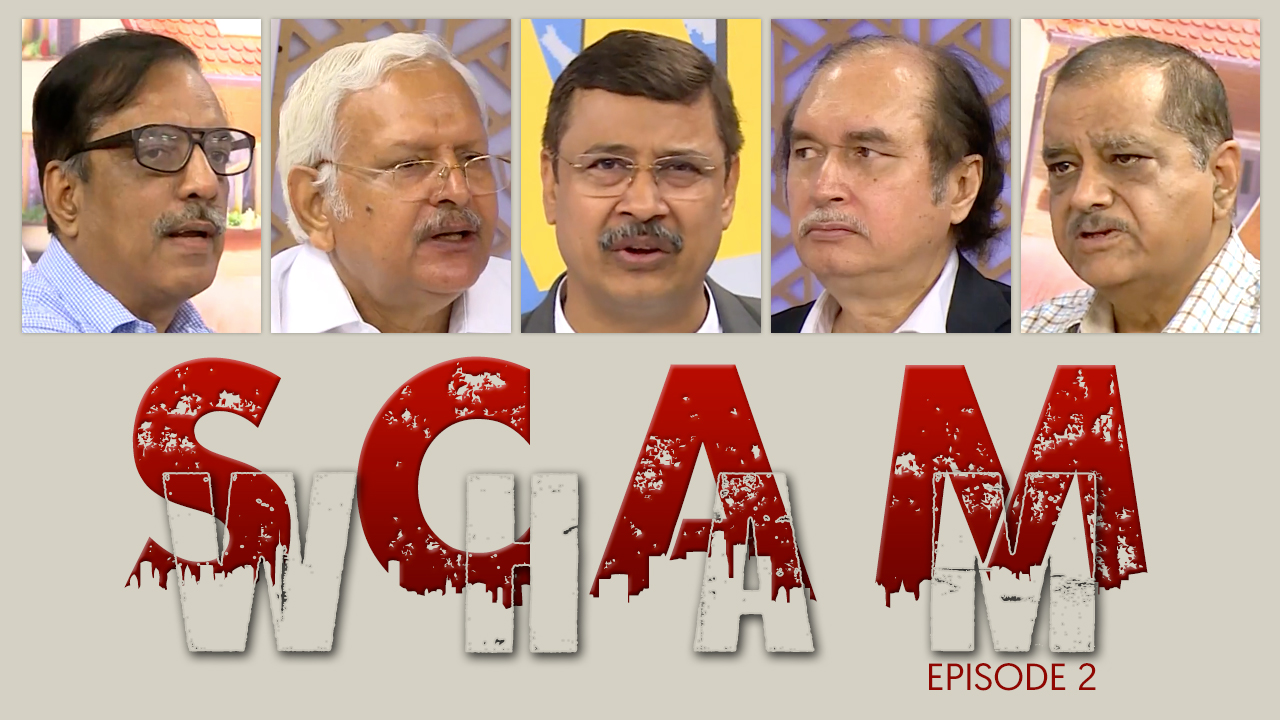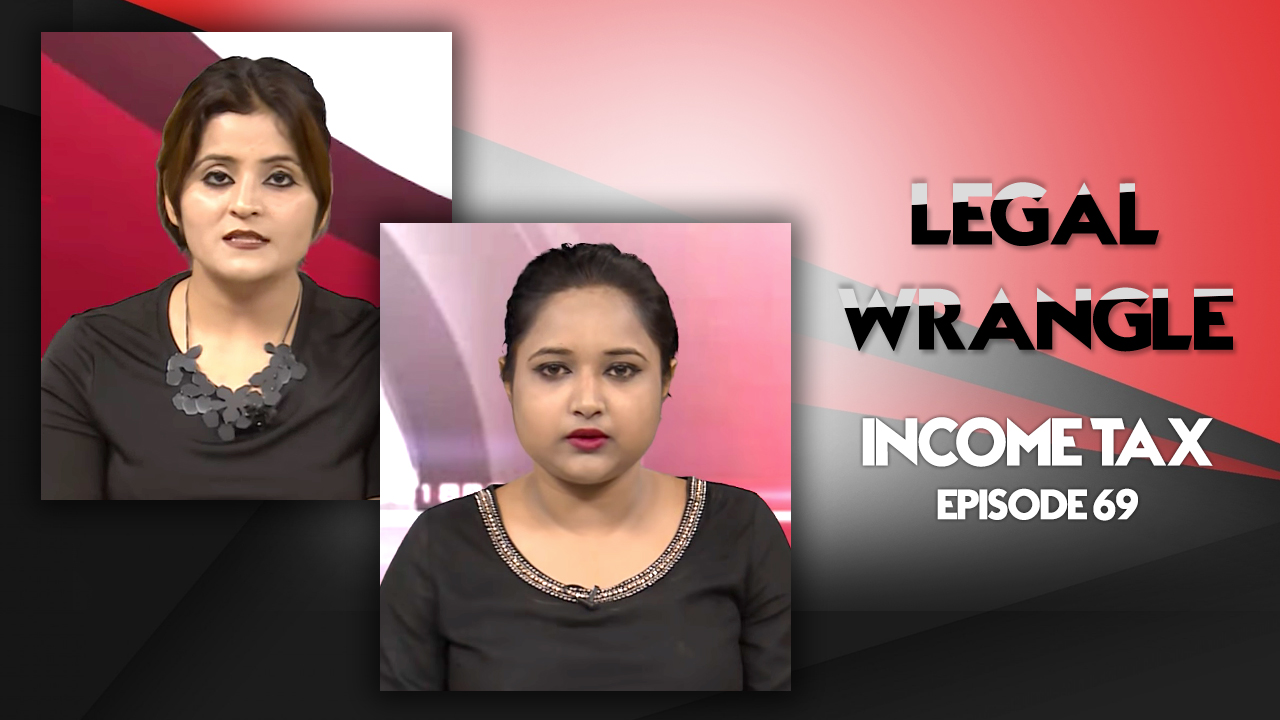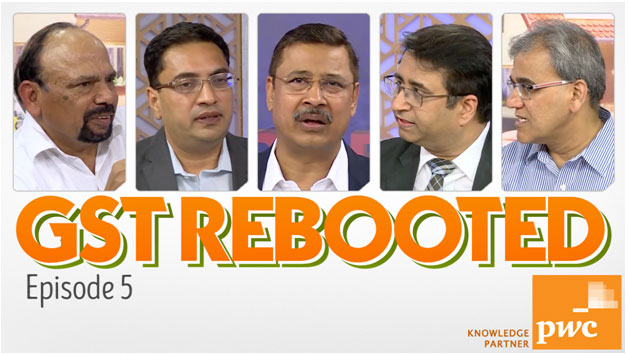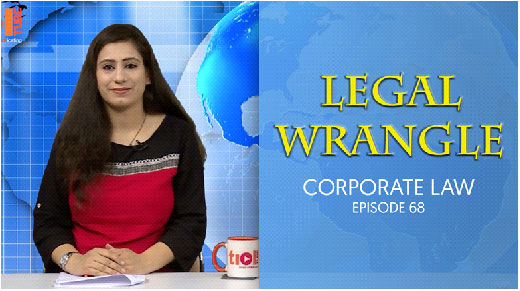SERVICE TAX SECTION
2018-TIOL-556-HC-CHHATTISGARH-ST CCE, C & ST Vs Vimla Infrastructure India Pvt Ltd
ST - the assessee-company provided services by raising construction of Railway Siding - In this process, the assessee used several inputs such as Cement and Iron - The Department claimed that such service by itself was not manufacturing activity, and so the assessee was ineligible to avail Cenvat credit.
Held - considered the definitions of 'input' and 'input' service under the CCR, 2004 - 'Input' would include all goods used to provide any output service or any goods used in construction of a building or a civil structure or a part thereof or in laying foundation or making structures to support capital goods - Similarly, 'Input service' would include any service used by service provider to provide an output service, including those used in relation to modernisation, renovation or repairs of a factory, premises of provider of output services or an office relating to such factory or premises - The railway sidings are low-speed tracks, distinct from a running line or through route such as a main line or branch line - Railway sidings are used for marshaling, stabling, storing, loading and unloading vehicles & other goods - In raising construction of railway siding, the assessee used MBC Sleepers, which are in turn constructed using MBC Railway Sleepers and RLS Rails - It may be noted that such railway sidings facilitate provision of 'Cargo Handling Service' - Thereby, considering such facts, the 'Inputs' were used to provide taxable output services - Hence, by erecting Railway Siding, the assessee provided taxable service for providing an output service - Thus it is eligible to claim Cenvat credit: High Court (Para 3,6-10) - Appeal Dismissed: CHHATTISGARH HIGH COURT
2018-TIOL-1025-CESTAT-MAD
IOC Ltd Vs CCE
ST - Assessee engaged in marketing products manufactured by M/s. CPCL and are paying service tax under category of 'Transport of Goods by Road' - Due to amalgamation of M/s. IBP Co. Ltd. with assessee w.e.f. 1.4.2004, they filed a refund claim on 31.1.2008 for service tax paid for storage and warehousing charges for period from April 2004 to February 2006 - Same was rejected holding that the demand is time-barred - Assessee has raised a contention adverting to SCN and submitting that the SCN does not allege any ground of rejecting the refund claim on the sole ground of limitation - Merit found in this argument - In SCN, the allegation raised is that the claim is proposed to be rejected as being time-bar for non-production of documents evidencing the payment of service tax - Needless to say that non-production of document is not a ground for considering the claim to be time-barred - The refund sanctioning authority as well as lower appellate authority have travelled beyond the SCN to conclude that relevant date is the date of payment of service tax and that sub-clause (ec) of section 11B does not apply - For this reason, rejection of refund claim is unjustified - Without stating the allegations in clear language in SCN so as to allow the assessee to defend their case, department cannot reject the refund claim by extending allegations at the time of adjudication - Impugned order set aside: CESTAT - Appeal allowed: CHENNAI CESTAT
CENTRAL EXCISE SECTION
2018-TIOL-1031-CESTAT-MUM + Story
Aurangabad Electricals Ltd Vs CCE
CX - Differential CE duty paid on supplementary invoices for the period April 2006 to March 2008 - SCN issued on 23/12/2008 demanding interest - no calculation of interest made nor such calculation giving the period for which interest is demanded has been annexed to the SCN - show cause notice is vague as it does not disclose the basis or period of default for calculation of interest being demanded from the appellant - there is no allegation that by virtue of differential duty on the subsequent supplementary invoices there was delay in payment of duty - SCN is deficient and not maintainable - Appeal allowed by setting aside impugned order: CESTAT [para 3 to 5] - Appeal allowed: MUMBAI CESTAT
2018-TIOL-1030-CESTAT-BANG
Itc Ltd Vs CCE, ST & C
CX - Assessee engaged in manufacture of cigarette cut-tobacco and are availing CENVAT Credit under CCR, 2004 on various input services - It was alleged that the assessee have availed CENVAT credit on various input services which do not fall in definition of input service as per Rule 2(1) of CCR, 2004 - Documents produced by assessee on record clearly establishes that the construction service was obtained prior to 1.4.2011 and it is only distributed by ISD in November 2011 - This issue has been settled in favour of assessee by decision in Carrier Air-conditioning and Refrigeration Ltd. 2016-TIOL-450-CESTAT-CHD and ITC Ltd. 2017-TIOL-1981-CESTAT-BANG - Therefore, by following the ratios of said decisions, credit cannot be denied and therefore, the impugned order is set aside: CESTAT - Appeal allowed: BANGALORE CESTAT
2018-TIOL-1029-CESTAT-BANG
Tata Hitachi Construction Machinery Company Pvt Ltd Vs CCE, C & ST
CX - Assessee is manufacturer of Construction Equipments and Excavator - Issue relates to availability of cenvat credit on services namely Repair and Renovation of their Paint Shop, Garden Maintenance, Cutting of Trees, Safety issues, House Keeping and Cleaning, Erection, Commissioning and Installation Service, Health and Driver's TA charges services - Revenue is of the view that these services are not 'Input Services' as per Rule 2(l) of CCR, 2004.
Repair and Renovation of Paint Shop - In impugned order itself, it is mentioned that the charges has been paid for renovation/repair of Paint Shop - As per Rule 2(l) for renovation services, assessee is entitled to avail cenvat credit
Garden Maintenance and Cutting of Trees - The assessee is required to maintain garden in their factory premises which is a statutory requirement of Pollution Control Board - To run the factory it is compulsory for assessee to maintain garden and require periodical cutting of trees - Therefore, as per Rule 2(l), assessee is entitled to credit.
Safety issues services - Without safety issue, employees of firm cannot work in their factory and without workers factory cannot run - Therefore, issues involved in question for safety of the employees/workers is essential part of their manufacturing activity.
House Keeping and Cleaning service - Housekeeping and Cleaning is an integral part of manufacturing activity, without availing that services full efficiency of workers cannot be obtained - Therefore, Housekeeping and Cleaning is an 'Input Service' as per Rule 2(l).
Erection, Commissioning and Installation Service - Said service has been availed by assessee for painting of excavators which is the final product manufactured by assessee - Said service is essential part of manufacturing activity of the assessee.
Health service - The assessee is maintaining first aid box in their factory and to run a factory medical facilities of minor accidents is required in every factory - Therefore, the Health Services are integral part of manufacturing activity.
Driver's TA charges services - The TA charges paid to the Driver for the work of factory are a part of manufacturing activity of assessee and directly related to the manufacturing activity.
Assessee has rightly availed the cenvat credit on the services in question: CESTAT - Assessee's appeal allowed: BANGALORE CESTAT
2018-TIOL-1028-CESTAT-MAD
Hindustan Motor Finance Corporation Ltd Vs CCE
CX - Dispute concerns alleged irregular input credit availed by assessee on various input services - The lower authority disallowed input service credit in respect of Event Management Service and Award Scheme Event - As assessee is not contesting the demand in respect of Award Scheme Event, denial of credit of service tax paid in respect of this service is upheld - The only issue that remains to be adjudicated concerns Event Management Services - These services are eligible input services since they are utilized for promoting sales of vehicles manufactured by assessee - However, assessee have not been able to produce sufficient documentary evidence before both the lower authorities in support of their contention concerning availment of the services - As assessee submitted that they have now been able to lay hands on required documents, interests of justice would be served by holding the Event Management Service as an eligible input service, however remanding the matter to original authority for limited purpose of confirming the quantum of such credit that can be availed, by causing verification of documents that would be produced in such de novo proceedings - As regards to penalty, there was no malafide in availing the disputed credits, hence there is a reasonable cause for having taken the credits, albeit wrongly, in respect of Award Scheme Event, which they were not eligible - This being so, penalties imposed is set aside: CESTAT
2018-TIOL-1027-CESTAT-MAD
Tube Investments of India Ltd Vs CCE
CX - Assessee engaged in manufacture of steel strips and are availing CENVAT credit of excise duty paid on inputs, capital goods and service tax paid on input services - During audit of accounts for period 2011-12 to 2012-13, it was noticed that assessee had wrongly availed cenvat credit on services like 'handling charges' while disposing their scrap and waste to TamilNadu waste Management and on 'Outdoor Catering Service' - Without doubt, it can be said that, assessee has to comply with the norms laid down by Pollution Control Board who issues the permission for manufacture - Thus it is directly connected to manufacture - The discussions made in case of Voith Turbo Pvt Ltd. 2010-TIOL-1768-CESTAT-BANG and JBM Auto system Pvt Ltd 2011-TIOL-1393-CESTAT-MAD are also relevant - Denial of credit is unjustified - The next issue is with regard to the credit disallowed on outdoor catering services - There is no dispute that the services were availed prior to 01.04.2011 - Master Circular dated 29.04.2011 (sl. No.12) clarifies that if the provision of service was prior to 01.04.2011 and the credit is availed after the same would be admissible - Assessee is eligible for credit on said two services: CESTAT - Appeal allowed: CHENNAI CESTAT
2018-TIOL-1026-CESTAT-DEL
S A Freshners Pvt Ltd Vs CCE
CX - Assessee engaged in manufacture of Gutka - During relevant period, assessee was subject to compounded levy scheme under Section 3A of CEA, 1944, r/w PMPM Rules, 2008 - As per Rule 5 of these Rules, certain quantities of pouches of Gutka were deemed to have been manufactured per packing machine per month, for pouches of different retail prices - Based on this deemed production, duty was to be calculated as per Rule 7 of said rules, r/w Notfn 42/2008-CE - Department views that duty for the month of July, 2009 would come to Rs. 1,20,00,000/- as per Rule 6 (4) readwith Rule 9 of said Rules, whereas the assessee of the view that they were required to pay duty of Rs. 85,16,130/- only, on pro-rata basis for period 10/07/2009 to 31/07/2009, as per the fourth proviso to Rule 9 of the said Rules - Under PMPM Rules, period of assessment is calendar month - It is evident from Rule 5 which provides for determination of capacity on monthly basis and the duty payable per machine is prescribed for each month - On a conjoint reading of rules as a whole particularly Rule 9 proviso 4, Rule 8 first proviso, Rule 6 (4), Rule 7, it is evident that applicable rule is Rule 9 which provides for monthly duty payable on notified goods shall be paid by 5th day of same month and an intimation in Form – II shall be filed with Jurisdictional Authority by 10th of same month - First proviso provides that in case a manufacturer commences manufacturing of goods of a new retail sale price during month on an existing machine, it shall be deemed to be an addition in number of operating machines for the month - Thus, purport of Rule 8 by way of example is that on a particular machine 'a' say a manufacturer is producing notified goods of MRP Rs. 1/- for the first 10 days of the month and on the same machine 'a' he starts manufacturing notified goods of MRP Rs. 2/- for the balance number of days, in that case it will be deemed the manufacturer has been manufacturing notified goods of Rs. 2/- MRP for the whole month and duty shall be payable accordingly - As period of assessment is month to month and admittedly the assessee have not manufactured notified goods of Rs. 2/- MRP from 1st to 9th July, accordingly, for the month of July 2010 their case is manufacture of Rs. 2/- new MRP notified goods and duty is required to be calculated as provided in Rule 9 (4) proviso of said rules - A Division Bench of Tribunal in Trimurti Fragrances Pvt. Ltd. 2015-TIOL-1099-CESTAT-DEL in case of claim for abatement for period of closure of factory when assessee paid proportionate duty for period factory was in operation and Department contended that assessee should have paid entire duty for the month and only thereafter should have claimed rebate - Accordingly, view taken by Revenue is against the provisions of PMPM Rules, 2008 r/w Section 3A of the Act - Accordingly, impugned order is set aside: CESTAT - DELHI CESTAT
CUSTOMS SECTION
2018-TIOL-1024-CESTAT-MAD
Chemplast Sanmar Ltd Vs CC & CE
Cus - Assessee imported Ethylene in bulk - The goods were assessed provisionally and later, assessment was completed resulting in certain excess payment on imported goods for year 2008-09 - Original authority finalized the assessment and recorded that there is an excess payment towards duty liability on import through Bill of Entry - The amount was refunded but credited to the Consumer Welfare Fund as assessee failed to satisfy that they are not hit by bar of unjust enrichment - Admittedly, goods imported in October 2008 suffered higher customs duty on provisional basis - The import cost along with higher customs duty has been considered for cost calculation in financial year 2008-09 - The only plea of assessee is that the import in October 2008 continued to be used in year 2009-10 and for that year their books of accounts showed customs duty excess payment as "receivables" - In case of admitted fact that at the time of import and for year 2008-09, the higher customs duty formed part of costing, Tribunal is not able to appreciate how such a certificate that full customs duty is not hit by unjust enrichment could have been issued by Chartered Accountant - Further, stock as on 1.4.2009 and utilization and costing principles followed in 2008-09 and 2009-10 has not been elaborately dealt in said Chartered Accountant certificate to satisfy the lower authorities that assessee is not hit by bar of unjust of enrichment - Summary certificate of this nature now produced cannot satisfy the legal requirement - Assessee have not satisfactorily established that the duty burden has not been passed on to third party and as such could not escape the bar of unjust enrichment - There is no reason to interfere with decision of lower authorities: CESTAT - Appeal dismissed: CHENNAI CESTAT
2018-TIOL-1023-CESTAT-DEL
Solvay Peroxythai Ltd Vs UoI/DA
Anti-Dumping - the present appeals contest the imposition of anti dumping duty on Hydrogen Peroxide imported from Bangladesh, Taiwan, Korea RP, Indonesia, Pakistan and Thailand - Of the present appeals, three were filed by the exporters, while two were filed by the domestic industry - The former appellants protest the imposition of anti dumping duty while the latter appellants defend it - Held - Considering the appeal filed by the Thailand-based exporter, it chose not to cooperate in the proceeding before the DA - Also for the first time in the present appeal, it challenged the methodology adopted for determining the injury and dumping margin - Being a non-cooperative exporter, it was nowhere in the picture during investigation - Hence as per consistent practice, the export by the appellant was put under residual category for determining the quantum of AD duty - There is no infirmity in such action - Moreover, regarding sickness and mis-management of Domestic Industry (DI) to other reasons, there is no bar in consideration of a sick unit as a DI - The appellants put to evidence to support their contention that the sickness or deterioration of DI was caused by factors other than the import of the subject goods - The impact of the import is discussed in detail by the Designated Authority (DA), and such findings warrant no interference - Nonetheless, while upholding the anti-dumping duty, the calculation of net return by the DA needs re-examination to verify the correctness of the return on investment as arrived at by the DA based on optimum production of 15 months and again by adjustment in the net return - However during re-examination, the present levy as recommended and notified will continued to be charged: CESTAT (Para 1,2,3,16-27) - Appeals Partly Allowed: DELHI CESTAT
|









